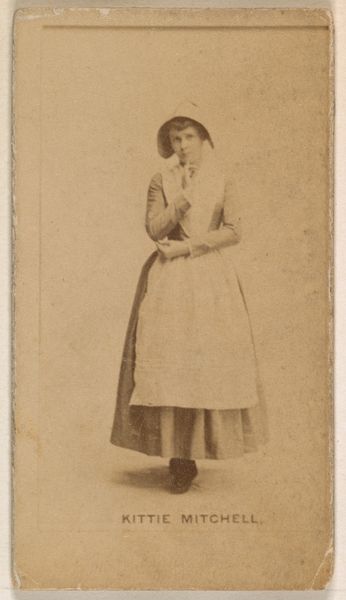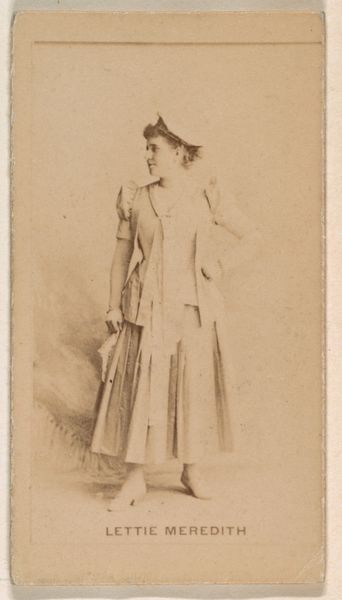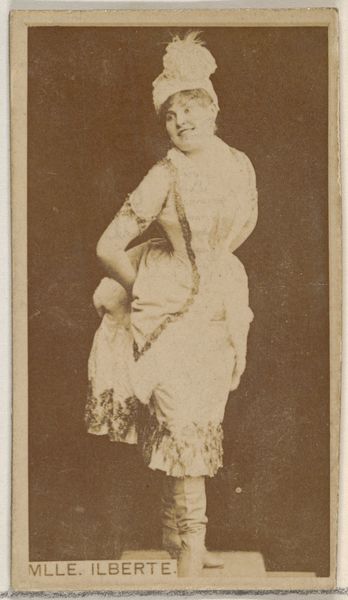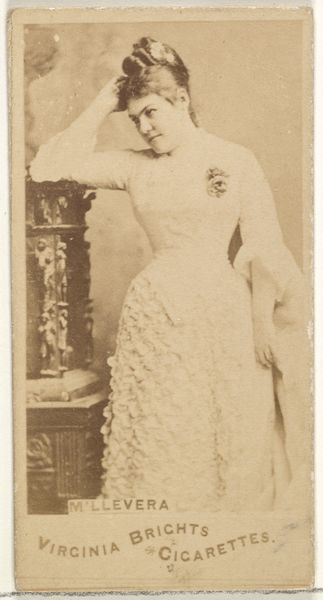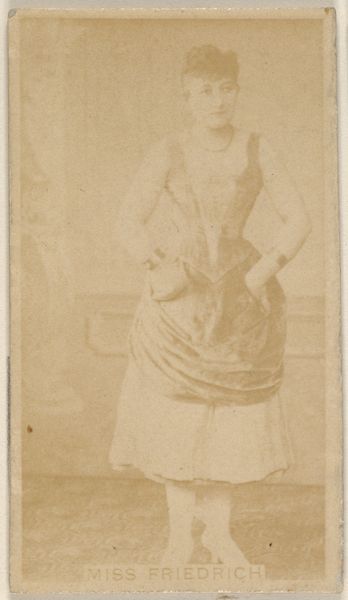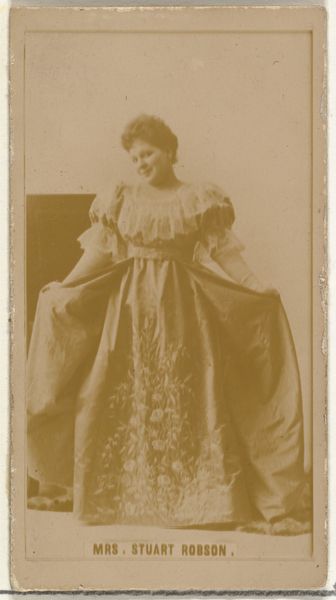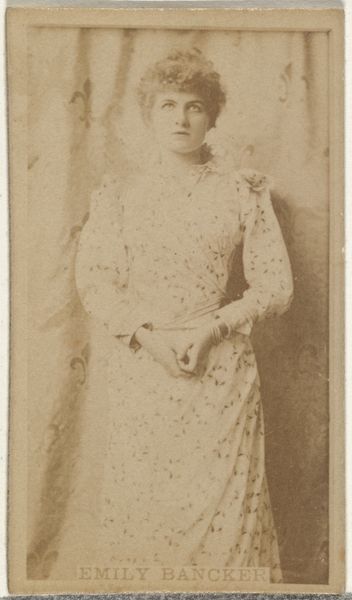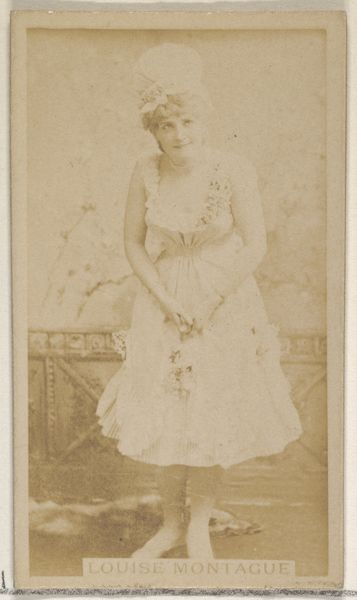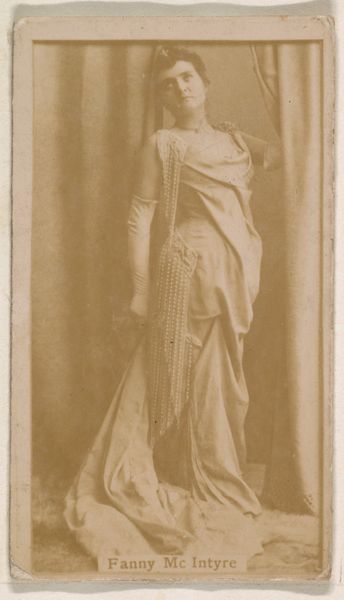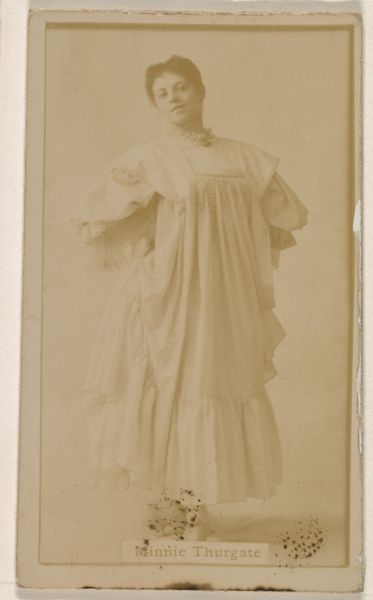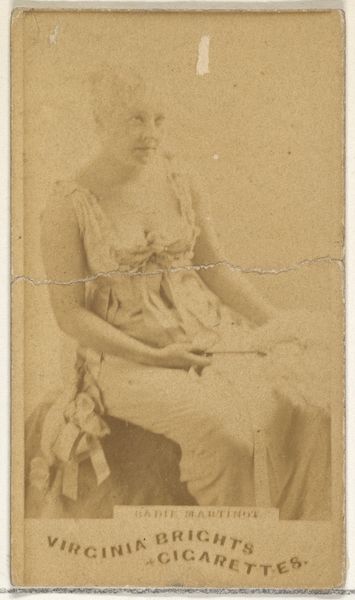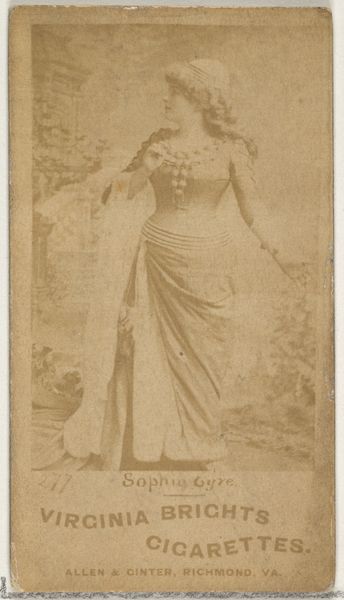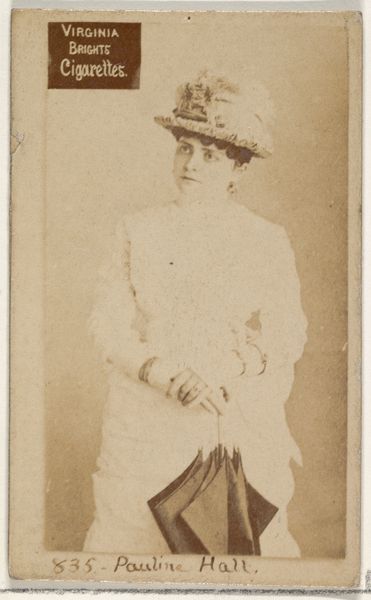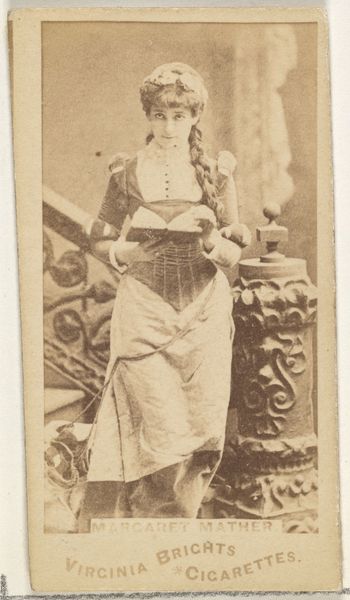
Pauline Hall, from the Actors and Actresses series (N45, Type 8) for Virginia Brights Cigarettes 1885 - 1891
0:00
0:00
drawing, print, photography
#
portrait
#
drawing
# print
#
charcoal drawing
#
figuration
#
photography
#
academic-art
Dimensions: Sheet: 2 5/8 x 1 1/2 in. (6.6 x 3.8 cm)
Copyright: Public Domain
Editor: This is a photographic print titled "Pauline Hall, from the Actors and Actresses series," created by Allen & Ginter between 1885 and 1891. It has an old-fashioned, almost sepia-toned quality. What strikes me is the subject's averted gaze. How do you interpret this work? Curator: That averted gaze speaks volumes, doesn't it? These trade cards, while seemingly innocuous, offer us a lens into the construction of celebrity and the commodification of women in the late 19th century. Consider the male gaze so prominent at the time: How does Pauline Hall’s subtle refusal to directly engage with the viewer challenge those power dynamics, even if only slightly? Editor: So, it's more than just a portrait of an actress. It's also about challenging expectations for women. Curator: Precisely. Think about the societal pressures placed on women, especially actresses, during this period. Their images were circulated widely, but often without agency or control. How might this card be contributing to or resisting those power dynamics? And what does it mean that this image was distributed by a tobacco company? Editor: It's interesting to consider it in relation to the other works in the Met's collection. The tobacco card suggests an attempt to elevate a mundane product through association with fame and beauty. I hadn't really thought about celebrity and commodification in that light before. Curator: Context is everything. By examining the image through the lenses of gender, commerce, and representation, we gain a richer understanding of the social forces at play in this seemingly simple portrait. It reminds us to question the narratives presented to us and to consider the voices often marginalized in art history. Editor: Thanks. This really opens up the work and makes me think more deeply about these historical connections and representations.
Comments
No comments
Be the first to comment and join the conversation on the ultimate creative platform.
